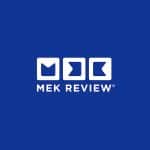
MLC Critical Reading & Common Core Standards
MEK Learning Circles: Critical Reading
How it helps students master Common Core State Standards
Our MLC Critical Reading program for 4th-8th graders puts students in small groups with an expert teacher to help them master critical thinking and advanced reading skills. Our program is especially designed to align with Common Core State Standards so students can excel in the classroom.
Read our blog to learn exactly what to expect:
#1. MLC Critical Reading Curriculum
The MLC Critical Reading curriculum aligns with Common Core Standards and NJ State standards in a number of ways.
First, students focus much of their class time on close group readings of various texts both in fiction and nonfiction genres. In these close readings, students build reading, inference, and vocabulary skills. They also learn to properly integrate textual evidence into their arguments and reflections, which not only significantly improves their own reading and critical thinking skills but also builds their writing ability in literary analysis essays and compositions.
Second, while executing these close readings, students identify common themes and topics in class texts, and over the course of their lessons, students continuously make connections between these themes and topics. They also further these connections by comparing and contrasting these various points of view with those of the other authors and writers previously covered in class.
A core element of these connections is also addressing links between the text and the student’s own life and lived experiences. This becomes a source of personal reflection and creativity on the student’s part which furthers skills in both personal and academic growth and achievement.
Lastly, students are evaluated on their individual abilities particularly when it comes to annotations, reading questions, and writing essays. Students complete much of these assignments outside of class, which permits them to not only build greater independence and confidence in their writing but also greater strength and certainty in their reading and literary comprehension.
Additionally, students focus much of their work within analysis. The design of the MLC Critical Reading curriculum places tremendous emphasis on analysis and reflection. As a result, these classes furthers the students’ perspective on literary topics while allowing them to identify clear and constant connections between texts and the real world.
Note: See direct-alignment for:
#2. MLC Critical Reading Structure
MLC Critical Reading teaches students CCSS-aligned standards through the meticulous design of the Critical Reading class structure.
The class is divided into three parts. And each part is meant to enhance skills and abilities in its respective domain. These divisions are as follows: reading, questions, and writing.
While independence is key in completing each section, within the MLC Critical Reading class structure, heavy emphasis is placed on continuous discussion and interaction between the students and the teacher. These exchanges are intended to facilitate student comprehension as well as lead and encourage students to more confidently assert their own interpretations and understandings.
In the reading and question components of class, students spend time both reading as a group as well as reading silently. Both forms involve precise close readings in order to determine important themes and ideas as well as implement the learnings of previous lessons centered in literary language and development.
Using annotation in their close readings, students learn to independently identify important ideas, instances of figurative language, direct and indirect characterization, as well as new and difficult vocabulary. From these indications, students further their reading comprehension, inference, and vocabulary skills, which helps them continuously flourish not only as readers and writers but also as thinkers beyond the sphere of the classroom.
In the writing element of the MLC Critical Reading classes, students make use of the notes and ideas they drew from their close readings and group discussions. At this stage, students effectively enhance their conclusions and inferences while they verbalize and write their analysis of previously identified key passages and textual points. Students and teachers brainstorm together to complete an introductory organizational scheme to their writing, and students are encouraged to further develop these points or even draw new potential conclusions when completing their essay assignments for homework.
Through these techniques, MLC Critical Reading provides optimal guidance for students within the classroom while also allowing them to independently draw their own conclusions and ideas at home.
#3. Why MLC Critical Reading Works
MLC Critical Reading engages students throughout the learning process particularly through the use of regular class discussions and group readings. Students are constantly invited to share their own thoughts and observations before, during, and after group readings.
In class, students are often given time to reread the texts silently and independently in order to cement or clarify the ideas they have gathered from the texts. Throughout all stages of the class, questions are always encouraged and in the case of silence, teachers lead their students towards drawing their own conclusions through the use of open-ended questions designed to make the students think critically and reflectively.
Furthermore, the use of essay workshops has been very effective in showing students both their strengths and weaknesses in essay writing.
During the workshop sessions, students review an anonymous essay and as a group make the necessary edits and corrections needed. All the while, students reflect on the work and praise its strength while trying to understand how that strength is achieved. In instances of weakness, students first identify the elements that weaken an essay or a sentence and then work towards finding solutions.
Over the course of these workshops, students identify themselves in the writing of their peers and become stronger in the editing and revision process. This growth permits them to bring those learnings into future essays both in the MLC Critical Reading class and in their own schools and future academic pursuits.
Ultimately, through this engaging and interactive learning experience, students learn to become strong readers, adept writers, and most importantly, advanced critical thinkers.
Get Your Child Started in MLC today!
Want your 4th-8th grader to have fun and excel in the school classroom. Join MEK Learning Circles today! Reach out to us and we’ll get you started with a student evaluation and our expert recommendations for which Learning Circle is perfect for your child.
We can’t wait to hear from you!


